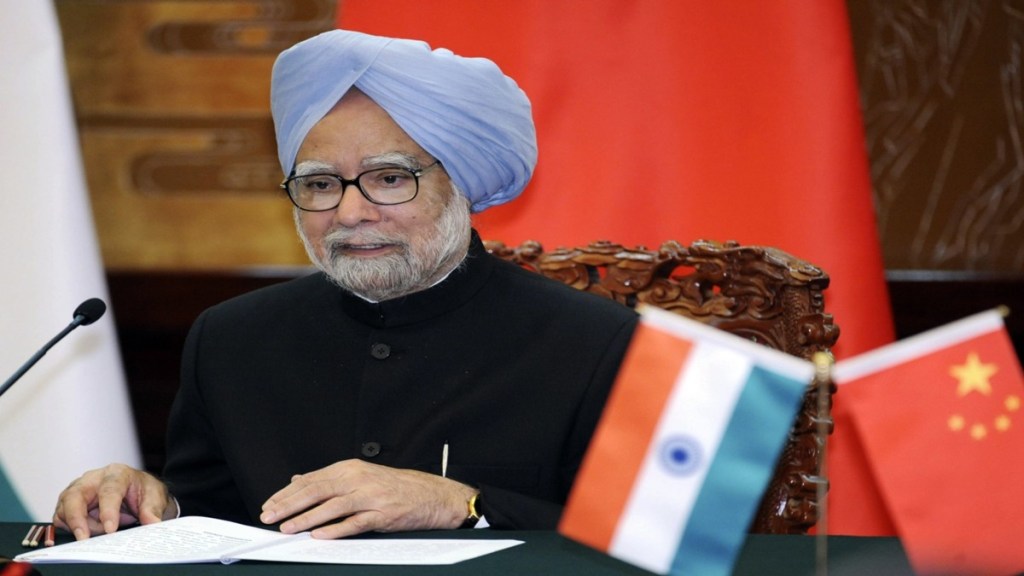By S Ramadorai
As the nation mourns the passing of former Prime Minister Dr Manmohan Singh, I reflect on my professional and personal association with him. His demise marks the loss of a visionary economist, a statesman, and a leader whose humility and grace distinguished him in public life. Having witnessed his leadership up close, I am reminded of the profound impact of his intellect and values on the nation’s journey.
Having been associated with the technology sector since the 1970s, I vividly recall the challenges we faced in hardware and technology imports. The economic liberalisation of 1991 came as a transformative moment that few could have imagined. What was once a herculean task — even importing basic computing equipment — gave way to an era of unprecedented growth. Today, that same sector has grown from a mere $150 million in 1991 to over $245 billion in annual revenue, employing 5.4 million directly and creating indirect employment for over 10 million Indians. The reforms did not just open up the economy; they unleashed India’s entrepreneurial spirit, putting the nation on the global map and creating opportunities for youths across the length and breadth of the country.
Digital public infrastructure creation became a cornerstone of the post-liberalisation economy. The setting up of the National Stock Exchange (NSE), which completes 30 years this year, marked a watershed moment in India’s financial modernisation. When Dr Singh, the then finance minister, inaugurated the NSE’s electronic trading system at the Nehru Planetarium hall in Mumbai in June 1994, it signalled India’s commitment to creating world-class financial infrastructure. As part of the TCS team that was actively involved in building this trading platform, I witnessed first-hand how this transformed our financial markets. Dr Singh’s vision then was as grand as I would witness later while working closely with him. The NSE would eventually become the world’s third-largest stock exchange, handling millions of trades daily through its satellite communication system connecting hundreds of cities. The platform has exceeded all parameters, with remarkable growth in trading volumes and market capitalisation.
The year 2004 was significant, as Dr Singh took over as Prime Minister, and it was also the year when TCS went public. As TCS grew from strength to strength, I had the privilege of meeting him on numerous occasions. Each discussion with him was rich in content and substance. His vision of technology as a tool for inclusiveness and democratisation was evident in our conversations. He consistently emphasised the importance of building at scale while ensuring no one was left behind.
This commitment was particularly evident in initiatives like the MCA21 e-Governance project, which transformed company registration processes and set new benchmarks for ease of doing business by making them digital and highly efficient. He was always receptive to new ideas and supportive of projects that could accelerate India’s progress.
It was this same vision that led to my involvement in the National Skill Development initiative in 2011. The late professor C K Prahalad had identified skill development as a crucial pillar in his India@75 vision. Dr Singh recognised its importance and took decisive steps to address this national priority despite enormous challenges.
The task was immense. India needed to skill millions of youth, yet lacked basic infrastructure, data, and established standards. Under Dr Singh’s guidance, the National Skill Development Mission expanded rapidly. We succeeded in building new partnerships through the National Skill Development Corporation, standardising and digitising training processes and curriculum with over 40 sector skill councils. The initiative grew exponentially, covering almost every district. His interest in the Northeast and setting up skill development centres, along with the modernisation of industrial training institutes, reflected his belief in bridging disparities through skilling.
His personal involvement was crucial in coordinating with multiple ministries and state governments. His ability to iron out issues and build consensus was remarkable. The foundation was robust, and it has been heartening to see subsequent governments strengthen these initiatives further, including establishing a dedicated ministry of skill development and entrepreneurship, an important milestone for India.
What truly set Dr Singh apart was his unique leadership style that combined intellectual rigour with humility. Policy discussions with him were never just about administrative details — they delved into fundamental questions about impact and long-term implications. Despite his position, he remained extraordinarily accessible. His response to every communication, whether via email or letter, reflected not just courtesy but genuine engagement with ideas.
The institutions and frameworks established under his leadership — from modernised financial systems to robust governance systems, technology initiatives to skill development frameworks — form the backbone of Indian economy. Throughout his career, Dr Singh demonstrated that effective leadership stems from competence, integrity, and a genuine concern for the welfare of all. These values are his enduring gift to the nation, which will be increasingly important as we navigate a complex world.
Our interactions continued after his retirement, meeting at his residence without any agenda — engaging in intellectual discourse to pass on ideas to the younger generations.
His passing marks the end of an era, but the institutions he nurtured continue to shape India’s journey forward.
The writer is former CEO & MD, TCS, and former chairman, National Skill Development Corporation.
Disclaimer: Views expressed are personal and do not reflect the official position or policy of FinancialExpress.com. Reproducing this content without permission is prohibited.

